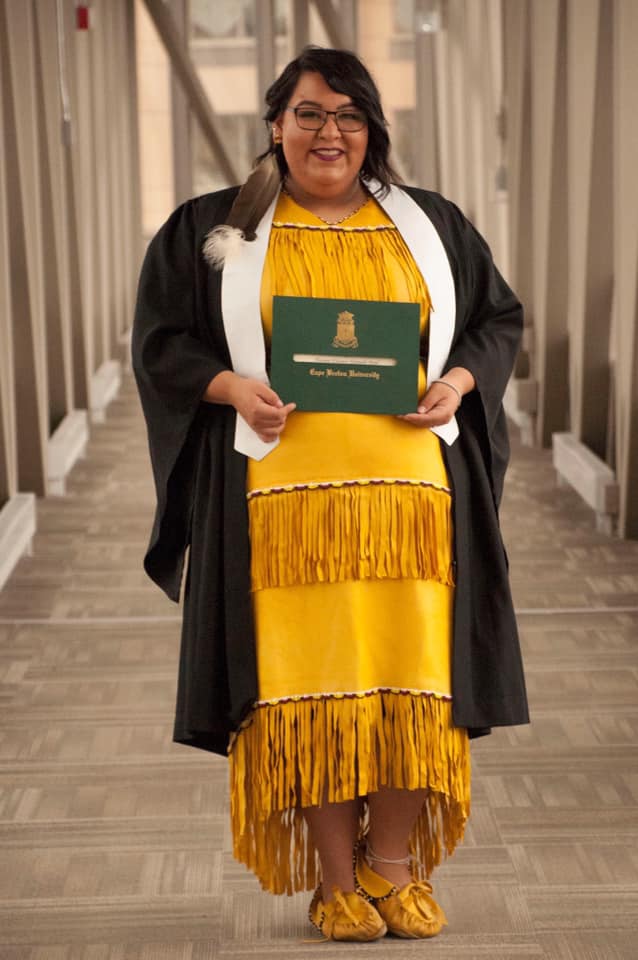When Tiannie Paul walked across the stage at Cape Breton University over the weekend to receive her diploma, she never expected to also receive a standing ovation.

But as the first Mi’kmaw woman to complete the engineering diploma program, the school decided to honour her achievements.
READ: Eagle feathers now an option for legal affirmations in N.S. courts
“I wasn’t expecting that at all, so that was a shock to me,” Paul said of the accolade.
“I feel proud that I stand as an Indigenous woman. I’m just excited that I’m following my dreams and nobody’s stopping me from following them.”
Under her graduation gown, Paul proudly wore her regalia. On stage, she received two copies of her diploma: one in English, and the other in the Mi’kmaw language.
A video posted on Facebook by Paul’s mother shows the moment Paul is recognized as the “first female Mi’kmaw graduate of the engineering program in the history of Cape Breton University,” followed by rousing applause and an emotional moment for her mother.
The university confirmed Paul is the first Indigenous female to graduate from the engineering diploma program, which was created more than three decades ago, and called her “an inspiration.”
“Cape Breton University is extremely proud of Ms. Paul’s accomplishment. She is an inspiration to her community and her story will, most certainly, influence others in their pursuit of education,” read a statement from the university.
Paul, who was born and raised on the Eskasoni First Nation, is now spending the next two years studying at Dalhousie University in Halifax in order to complete her Bachelor of Engineering degree.
READ: First Nations ‘living in Third World conditions’ as communities endure water advisories
The 22-year-old is studying environmental engineering, and has plans to use her education to help her community.
“My plan after I graduate is to get some experience, maybe out west somewhere, in Indigenous communities to help with water quality and wastewater. And eventually, go back home to Eskasoni, Cape Breton, and work for my community and to share my expertise,” she said.
“Water quality is important because most Indigenous communities in Canada have poor water quality and it’s non-drinkable. I would like to have cheap filtration set up that would help communities access clean water.”
In the meantime, Paul says she is focused on her studies and is enjoying the move to Halifax.
She’s also proud to have made her family and community standing behind her.
“I would like to thank my family and friends for always believing in me, but most importantly, I want to thank my mother for raising me into a strong independent Indigenous woman. Without her knowledge and courage, I wouldn’t be here right now,” she said.













Comments